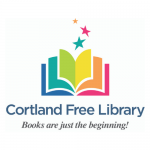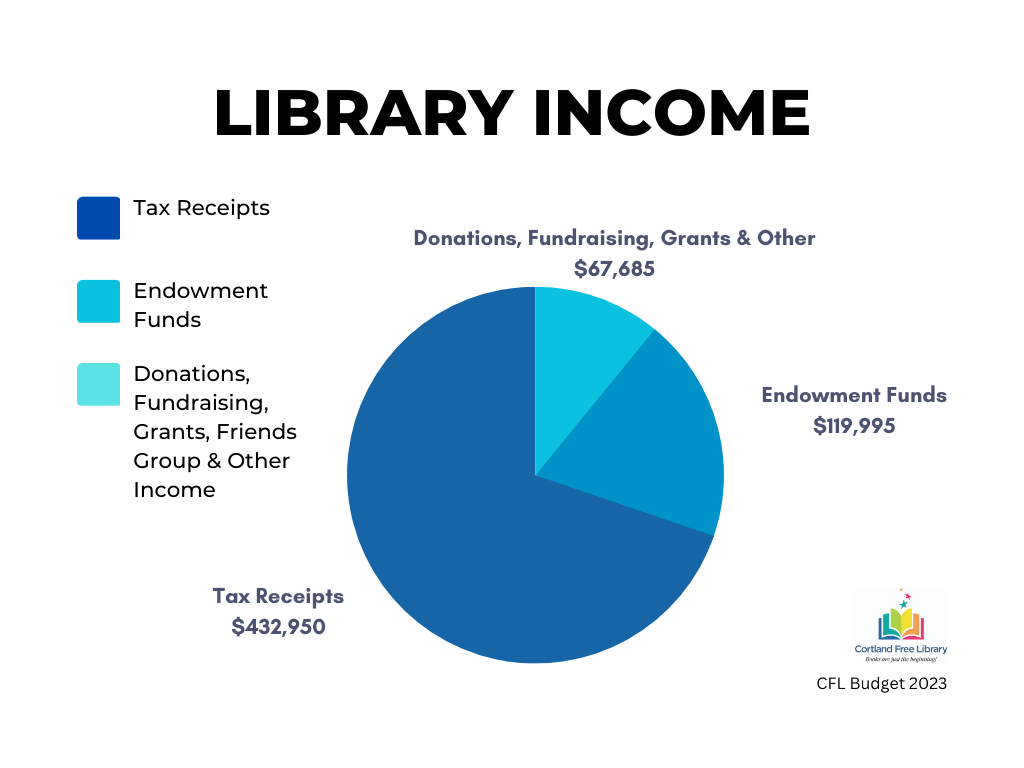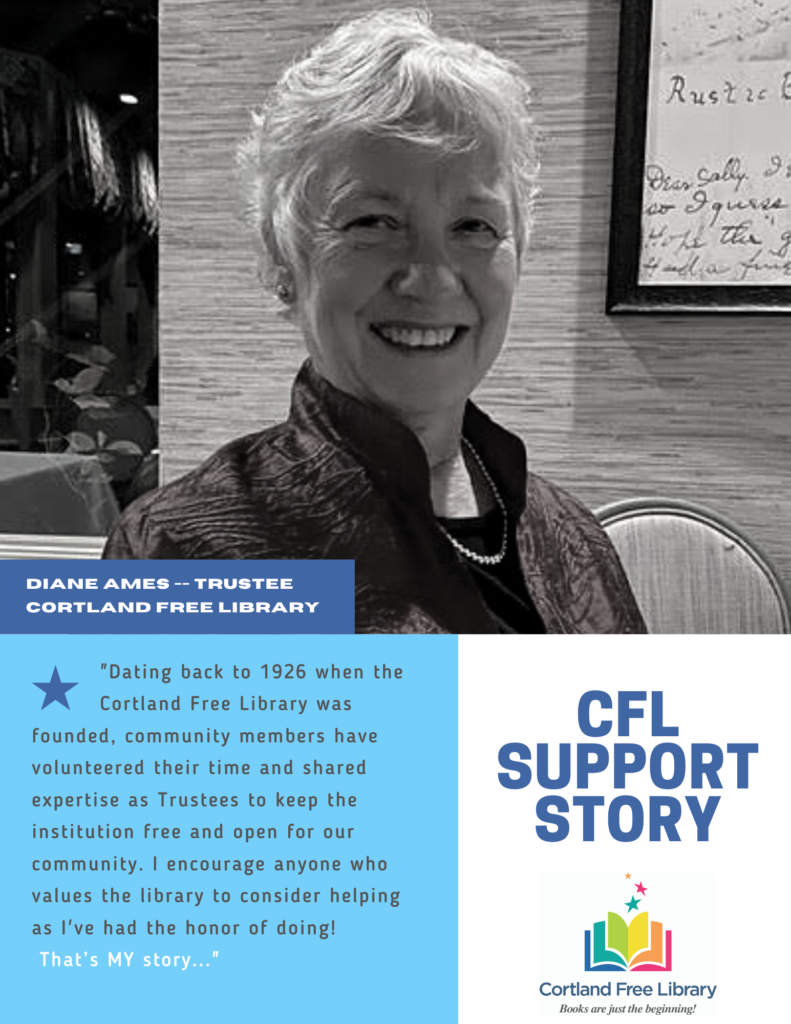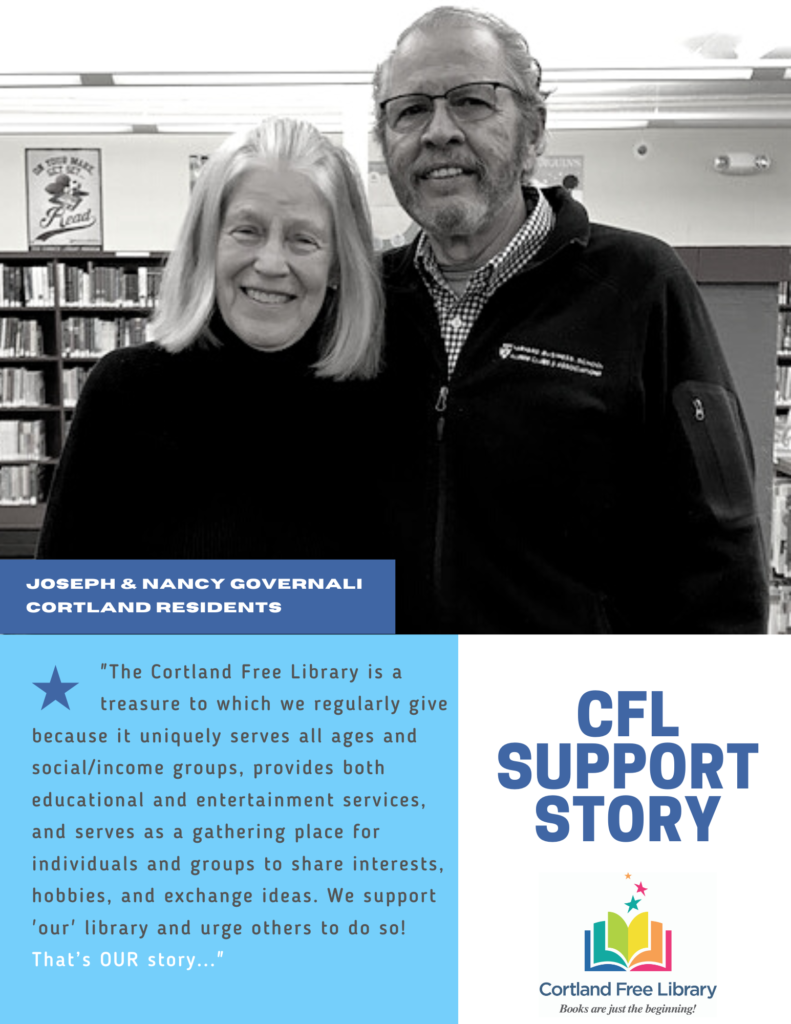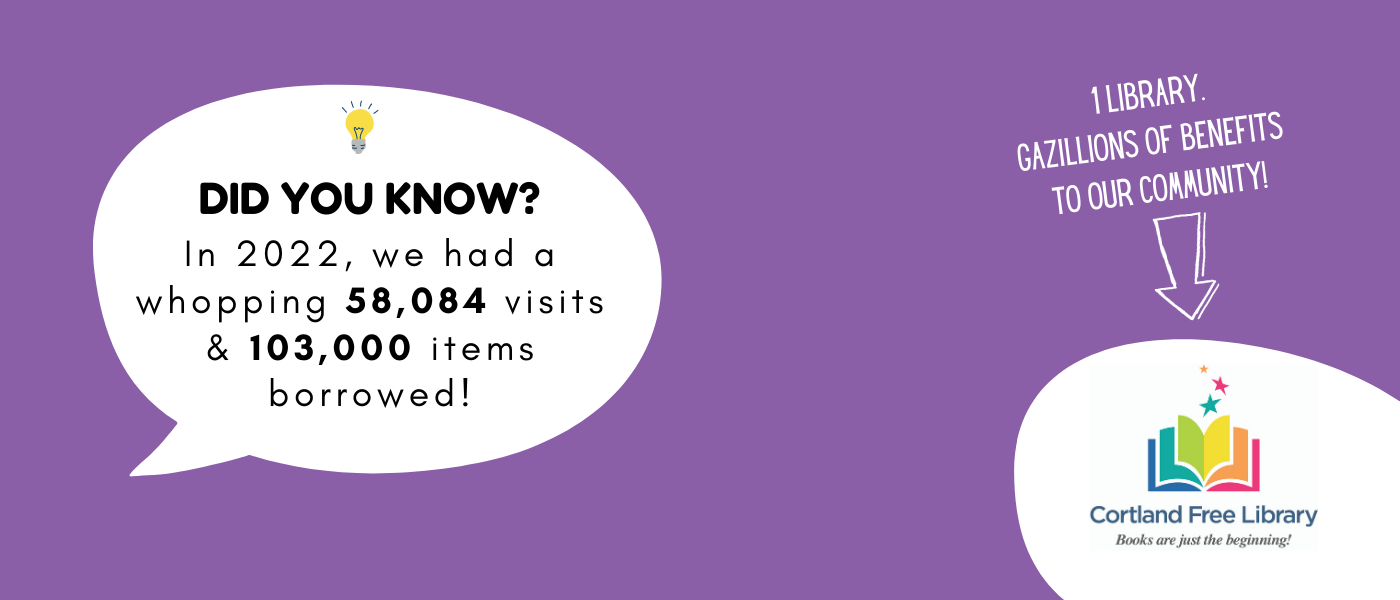
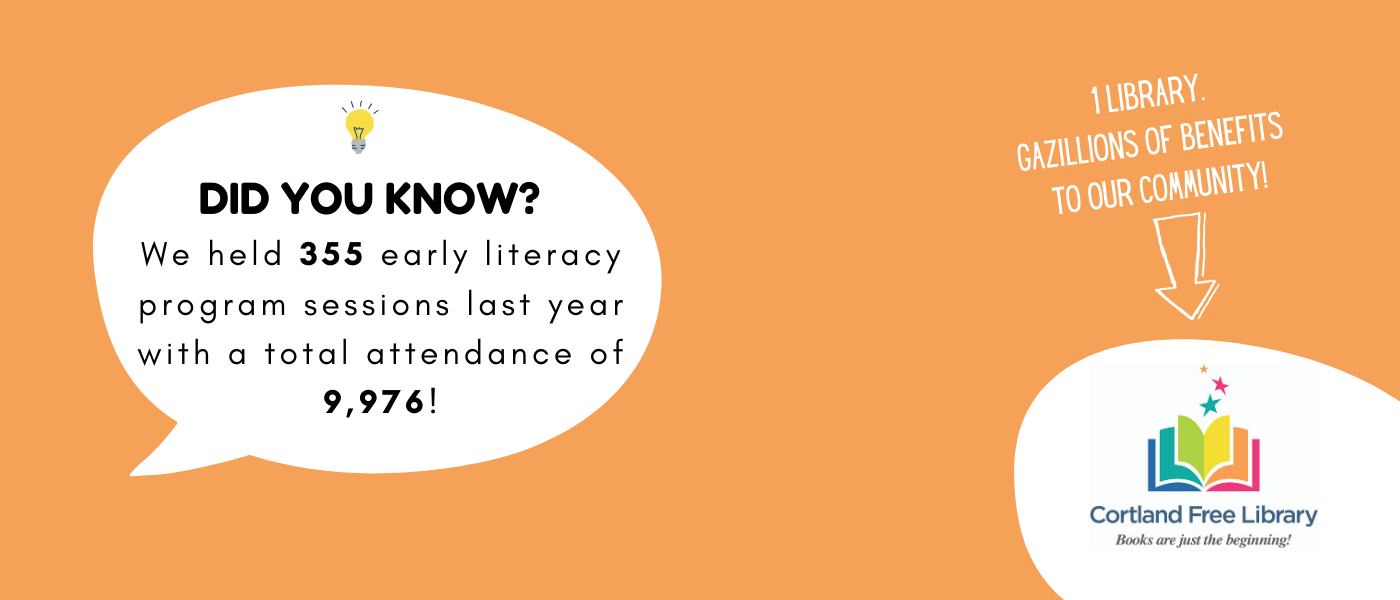
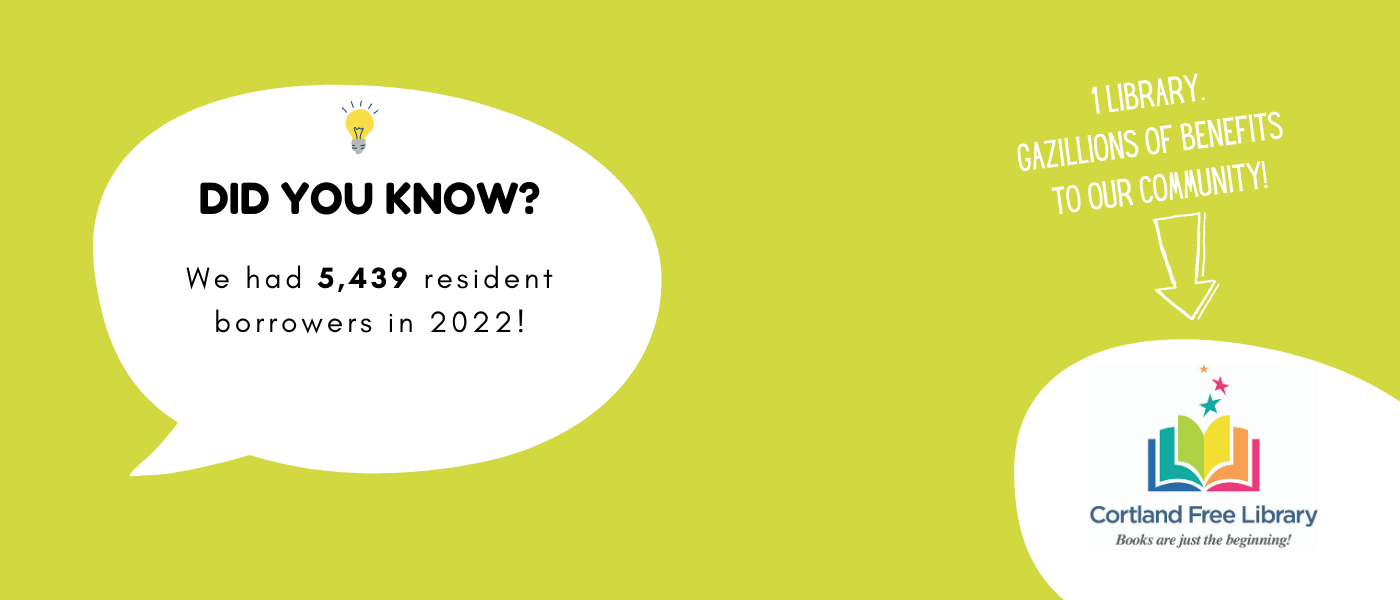
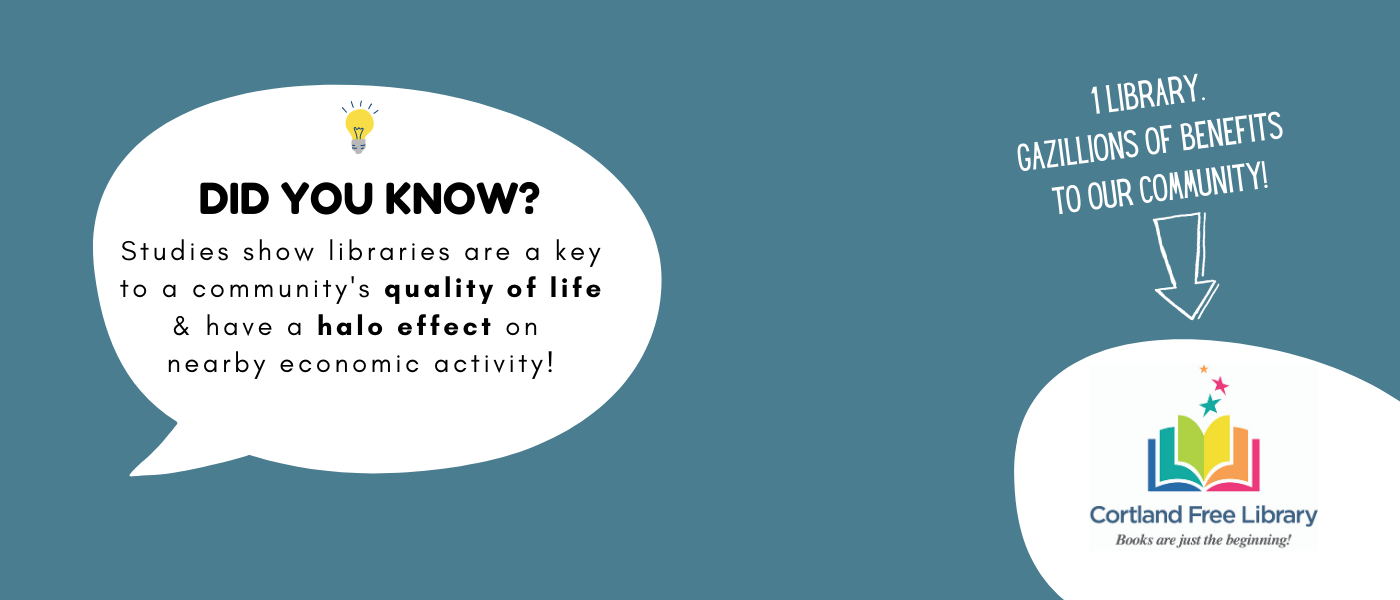
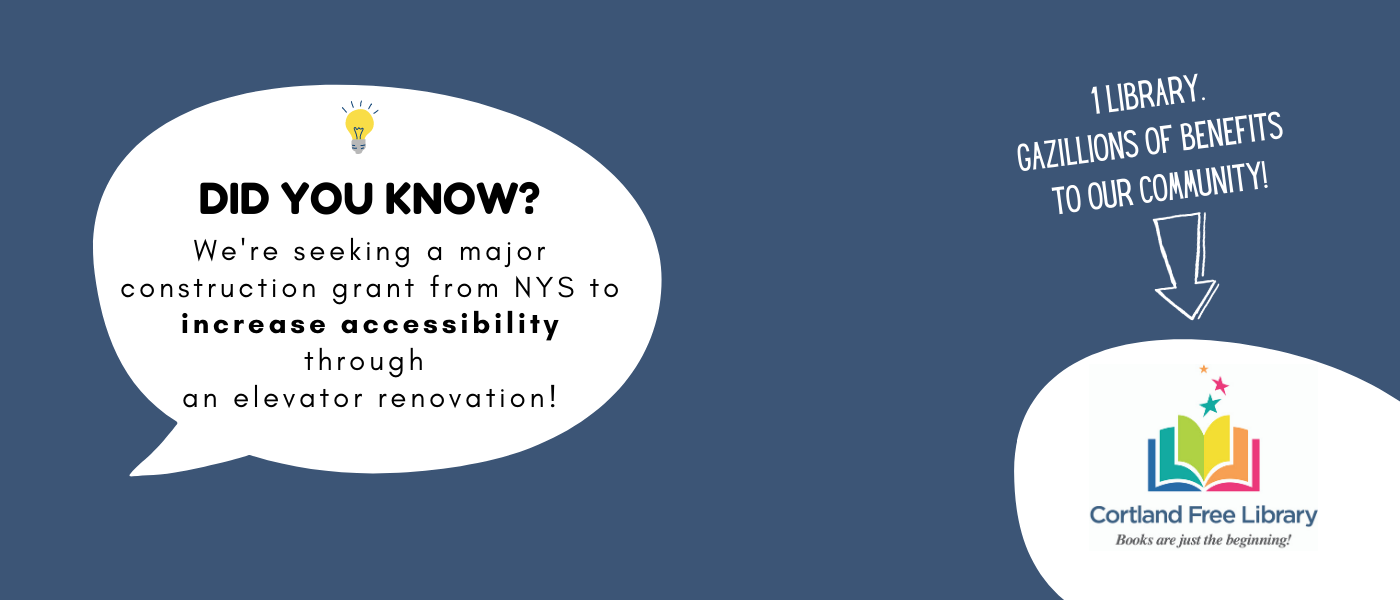
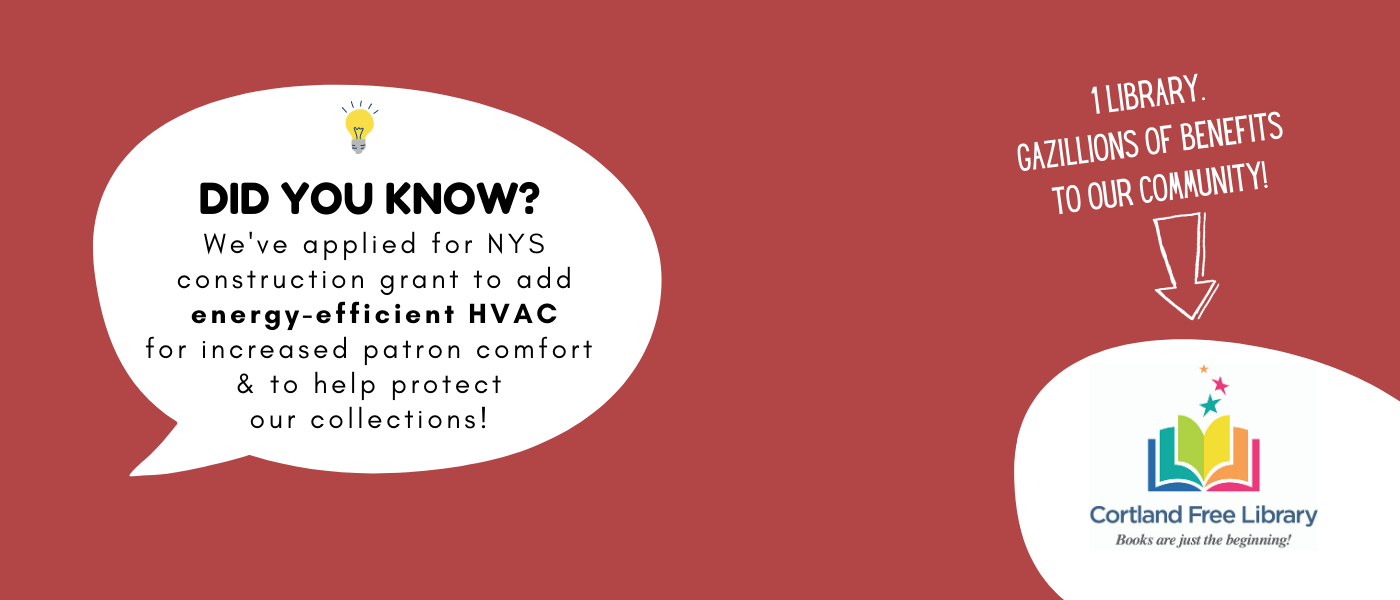
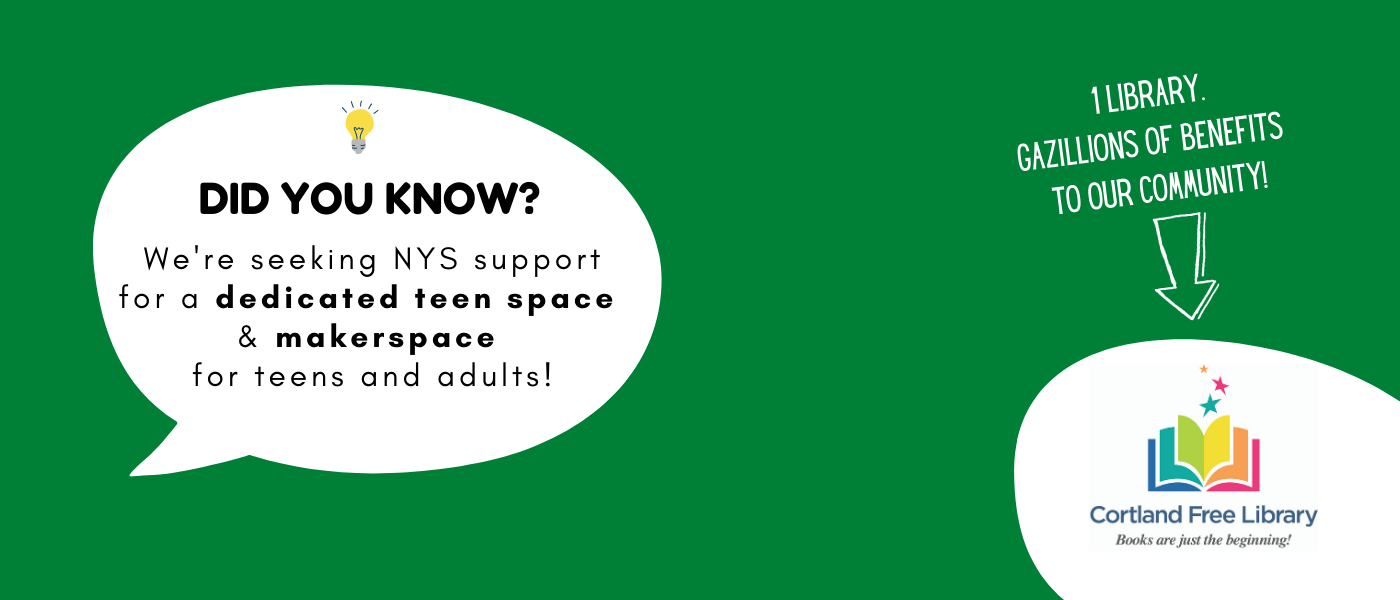
Library Funding Info
The budget for 2023 is $657,441. This amounts to $537,446 in operating, i.e., tax-funded expenses (building expenses, payroll, utilities, etc.) and $119,995 in trustee endowment expenses (books and materials, furniture and fixtures, repairs, etc.). It also means the library needs to propose a higher percentage increase of 8% rather than the usual 2% in terms of the tax cap.
If your home is assessed at $100,000, you would currently pay $1,877.22 in school tax and just $42.87 in library tax.
Find your property here, then click “Show Levy Details” to determine the actual amount you pay per year.
Originally established in 1886, the Hatch Library was chartered by New York State as the Cortland Free Library in 1925. At that time, the City of Cortland agreed to fund operating expenses of the library, while the Trustees funded books, furniture, and fixtures — establishing a managed endowment to that end in 1926. In the years that followed, the towns of Cortlandville and Virgil were added to the library’s chartered service area and, in turn, began contributing some funds for operations.
Over time, however, obtaining funds from municipalities served by the library became increasingly challenging, until, in 2008, then Mayor Tom Gallagher and CFL Board President Diane Ames saw the need to explore forming a school tax district, after which CFL Trustee Nick Esposito formulated the first tax request. A successful public referendum ensued, ensuring that library funding would never fall below a set amount each year.
Since then, the proposition for continued taxpayer funding of the library has appeared on the annual school budget ballot with annual increases never having exceeded New York State’s 2% tax cap (established as law in 2011) until extraordinary circumstances necessitated a proposed increase of 8% in 2023.
Ever mindful of having the honor to serve the Cortland, Cortlandville, and Virgil communities – and with it the responsibility to do so without undue strain on local taxpayers – Cortland Free Library has never before exceeded the NYS tax cap of 2%.
That said, extraordinary circumstances have necessitated a larger increase in 2023 (vote to be held May 16), including:
- historic inflation (8%+), which has had a corollary impact on library expenses;
- the need to provide fair and competitive compensation, in what is also a historically competitive job market;
- reduced returns from the library’s endowment, due to recent market volatility;
- the need to provide a 25% match for what we believe will be a successful application for a major NYS Construction Grant (see the New & Noteworthy section of this webpage for more information)
- among other factors.
It must be emphasized that the library Trustees undertook this step only after painstaking analysis, deliberation, and consideration – and it is the Board’s expectation that the library will return to annual increases below or at the 2% tax cap for the foreseeable future.
- Books! Borrow up to 30 at a time (without paying overdue fines) and Audiobooks. Through us, you also have access to the collections of all 33 libraries in the Finger Lakes Library System.
- Children’s programs, including Preschool Storytime, 5th Grade Book Club, Ready, Set, Read! and more.
- Dial-a-Story (listen to stories, poems, and more).
- Digitized local newspapers.
- Dolly Parton’s Imagination Library (free books mailed to kids ages 0-5).
- e-Books, audiobooks, e-Audiobooks, all free to borrow via the Libby app.
- Free access to computers & WiFi
- Hotspot and telehealth kit borrowing.
- Knowledgeable and friendly library staff to help you find what you’re looking for.
- Magazines (visit our Periodicals Room to check our all your favorites).
- Mail-It program for homebound patrons!
- Movies (blu-ray and DVDs).
- Museum and park passes
- Music (CDs).
- Ongoing book sale in our Book Shoppe.
- Programs for teens and adults, including Craft Club, Taste & Tell, Community Reads, and more!
- Print, fax, scan, and make copies at the library!
- Research and reference resources, including genealogy.
- Room reservation for your next meeting.
- Space/place for studying, reading, gathering, or just “being.”
- Test proctoring services;
- and more!
THANK YOU to everyone who voted!
On Tuesday, May 16, vote at your designated site: the Virgil Town Hall (1176 Church Street), the Cortlandville Municipal Garage (3587 Terrace Rd) or the Kaufman Center (CECSD District Office: 1 Valley View Drive). Polls are open from noon to 9 p.m.
New + Noteworthy
Library Construction Aid Awarded for Multiple Projects
The elevator will be reconfigured to a three-opening unit with additional stops at the Art Gallery and Northwest Mezzanine, making these areas accessible for the first time to people in wheelchairs and others.
Read more about what we’ve done towards making the library more accessible here (note that the platform lift referenced was replaced in the grant application with the above Elevator Reconfiguration & Expansion plan): CFL Building Accessibility Timeline & Accommodations.
This means air conditioning in the Main Reading Room! Those of you who have been here in the summer know that it sometimes hits 90 degrees in the stacks. This new system will help provide comfort and safety to staff, patrons, and our library materials.
- Dedicated Teen Space
- Dedicated Community Room
- Dedicated Makerspace in the Northwest Mezzanine
- More!
Southwest sections of the parapet are crumbling and allowing water seepage into the building; this replacement will help prevent future damage.
Highly visible, colorful permanent sign to be installed at the Northeast corner of the building.
Other Ways Libraries Add Value to Their Communities
Apart from the benefits one might expect from a public library, we also contribute to our communities and local economies in ways that might surprise you. For instance:
A survey by the American Library Association found that 98% of public libraries offer resources and services to support small business development, including access to market research databases, business plan templates, and networking events. The same survey also found that 40% of libraries offer one-on-one business counseling and support services. Finally, public libraries provide business databases and job listings — as well as well-equipped, low- or no-cost spaces for entrepreneurs and small business owners to conduct meetings and host events.
A study by the American Library Association found that in Chicago, public libraries generated $333 million in economic activity in 2017, including spending at nearby businesses such as restaurants and coffee shops by library patrons. According to another study by the Aspen Institute, every $1 invested in public libraries generated a return on investment of $4.50 in economic benefits.
According to a study by the Urban Libraries Council, most public libraries help job seekers by providing access to job training and placement resources, as well as by serving as community meeting spaces for employers and job seekers. The study found that 95% of libraries offer job search assistance and 84% provide access to career development resources.
Public libraries provide access to technology resources, such as computers, printers, and internet access. This access is especially important for individuals who cannot afford their own technology or who live in areas with limited access to technology. (Bridging this gap is also known as creating digital equity.)
According to a study by the Pennsylvania State University, properties located within two miles of a public library increased in value by an average of 3.3% between 1996 and 2016. The study also found that the presence of a public library was associated with higher home values in lower-income neighborhoods.
For example, the Seattle Public Library’s Central Library, which opened in 2004, was part of a larger development project that included retail and residential spaces. The project helped to revitalize the surrounding area, attracting new businesses and residents.
Public libraries can also support civic engagement and community development. According to a study by the Institute of Museum and Library Services, public libraries are trusted institutions that can help to bridge social and economic divides by providing access to information, resources, and community events. The study found that libraries provide a space for civic engagement, where individuals can come together to discuss and address community issues.
A 2011 study in Minnesota conducted to ascertain public libraries’ return on investment found that people prefer to live near a public library if they have a choice and often perceive library access as part of an enhanced quality of life.
